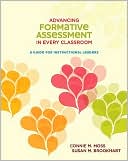Category Books
- Fiction Books & Literature
- Graphic Novels
- Horror
- Mystery & Crime
- Poetry
- Romance Books
- Science Fiction & Fantasy
- Thrillers
- Westerns
- Ages 0-2
- Ages 3-5
- Ages 6-8
- Ages 9-12
- Teens
- Children's Books
- African Americans
- Antiques & Collectibles
- Art, Architecture & Photography
- Bibles & Bible Studies
- Biography
- Business Books
- Christianity
- Computer Books & Technology Books
- Cookbooks, Food & Wine
- Crafts & Hobbies Books
- Education & Teaching
- Engineering
- Entertainment
- Foreign Languages
- Game Books
- Gay & Lesbian
- Health Books, Diet & Fitness Books
- History
- Home & Garden
- Humor Books
- Judaism & Judaica
- Law
- Medical Books
- New Age & Spirituality
- Nonfiction
- Parenting & Family
- Pets
- Philosophy
- Political Books & Current Events Books
- Psychology & Psychotherapy
- Reference
- Religion Books
- Science & Nature
- Self Improvement
- Sex & Relationships
- Social Sciences
- Sports & Adventure
- Study Guides & Test Prep
- Travel
- True Crime
- Weddings
- Women's Studies
Advancing Formative Assessment in Every Classroom: A Guide for Instructional Leaders »

Authors: Moss, Connie M., Susan M. Brookhart
ISBN-13: 9781416609117, ISBN-10: 1416609113
Format: Paperback
Publisher: Association for Supervision & Curriculum Development
Date Published: December 2009
Edition: (Non-applicable)
Author Biography: Moss, Connie M.
Book Synopsis
Formative assessment is one of the best ways to increase student learning and enhance teacher quality. But effective formative assessment is not part of most classrooms, largely because teachers misunderstand what it is and don't have the necessary skills to implement it.
In this practical guide for school leaders, authors Connie M. Moss and Susan M. Brookhart define formative assessment as an active, continual process in which teachers and students work together—every day, every minute—to gather evidence of learning, always keeping in mind three guiding questions: Where am I going? Where am I now? What strategy or strategies can help me get to where I need to go? Chapters focus on the six elements of formative assessment: (1) sharing learning targets and criteria for success, (2) feedback that feeds forward, (3) student goal setting, (4) student self-assessment, (5) strategic teacher questioning, and (6) engaging students in asking effective questions.
Using specific examples based on their extensive work with teachers, the authors provide
"Strategic talking points" and "conversation starters" to address common misconceptions about formative assessment;
Practical classroom strategies to share with teachers;
Ways to model the elements of formative assessment in conversations with teachers about their professional learning;
"What if" scenarios and advice for how to deal with them; and
Questions for reflection to gauge understanding and progress.
As Moss and Brookhart emphasize, the goal is not to "do" formative assessment, but to embrace a major cultural change that moves away from teacher-led instruction to a "partnership of international inquiry" between student and teacher, with better teaching and learning as the outcome.
Table of Contents
Acknowledgments vii
Introduction 1
1 The Lay of the Land: Essential Elements of the Formative Assessment Process 5
2 Leveling the Playing Field: Sharing Learning Targets and Criteria for Success 24
3 Shifting from Correcting to Informing: Feedback That Feeds Forward 44
4 Achieving More with Focus: Fostering Student Goal Setting 60
5 Helping Goal-Setters Become Active Goal-Getters: The Role of Student Self-Assessment 79
6 Enriching Classroom Discourse: Planning For and Asking Strategic Questions 96
7 Valuing Critical Thinking and Inquiry: Engaging Students in Asking Effective Questions 114
8 Creating a Culture of Intentional Learning: Taking Formative Assessment Schoolwide 134
References 152
Index 158
About the Authors 164
Subjects
 Academic Administration
Academic Administration  Academic Evaluation
Academic EvaluationEducation & Teaching
 Educational Theory, Research & History
Educational Theory, Research & History  Psychology of Education
Psychology of EducationEducation & Teaching
 Social & Political Aspects of Education
Social & Political Aspects of Education  Education - Philosophy & Social Aspects
Education - Philosophy & Social AspectsEducation & Teaching
 Teaching & Teacher Training
Teaching & Teacher Training  Teaching - Teacher Training
Teaching - Teacher TrainingNonfiction
 All Nonfiction
All Nonfiction  Academic Administration
Academic AdministrationNonfiction
 All Nonfiction
All Nonfiction  Education - Social & Political Aspects
Education - Social & Political Aspects
